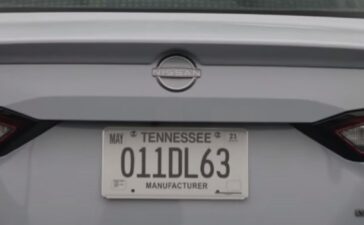One of the important indicators in a vehicle is the check engine light which helps the driver to be aware of potential issues and gets alerted. In the case of the check engine light a steady one is concerning but a blinking check engine light one is much more of a serious problem.
What are the most common reasons for Blinking Check Engine Light?
The reasons behind a blinking check engine light can vary from a really small issue to a big and serious one.
First in this long list is the problem with the malfunctioning converter and after those problems related to the engine misfiring there are other triggers such as faulty coils or malfunctioning spark plugs which can affect the engine sensors wrongly.
There is a long list consisting of faulty injectors, loose gas caps, problems regarding pistons, timing belts, rings, chains, cylinder heads, and leakage in vacuum hoses.
You might also enjoy: Everything You Need to Know About Mazda Check Engine Light
A steady check engine light vs. A blinking check engine light
you can find out about problems as soon as you see the check engine light turns on but the severity of the problem can be understood from the condition of the light and whether it is steady or blinking. A steady light indicates a not-so-serious problem like a loose gas cap or faulty sensor.
But if you see the blinking light it is warning you of a very serious problem like signaling a major engine problem like a malfunctioning engine or catalytic converter.
it is important to remember to address such problems as soon as possible in order to avoid safety hazards. So make note that although a steady check engine light advises you to get your vehicle a check-up in case of a steady check engine light tend to your vehicle immediately.
Blinking Check Engine Light: 12 Reasons + Fixes
1- Problematic Catalytic Converter
One of the crucial parts of the vehicle’s exhaust system is the catalytic converter. this component’s main job is to convert the harmful pollutants that are discharged from the engine into less harmful ones before they exit from the tailpipe.
As time passes because of the pollutants in the fuel or the problems with the engine it can get clogged or even damaged.
A malfunctioning catalytic converter can cause issues such as reduced fuel efficiency and increased emissions in some cases it can be responsible for the damage caused to other components of the engine.
Solution: In order to make sure your vehicle’s catalytic converter works correctly and properly make a note to inspect the exhaust system properly. this problem can be avoided if you use high-quality fuel.
There are other precautions that can be helpful like regular oil changes and making certain of the complete combustion can decrease the strain on the converter.
If after all these cautions the issue arises you must seek an expert to help you change the component. if you don’t want regular malfunctions, we suggest you use a high-quality catalytic converter for your vehicle.
You might also enjoy: Hyundai Check Engine Light On: 12 Causes and Fixes [2023]
2- Misfiring Engine
An engine misfire is a condition in which one or more of the engine’s cylinders fail to fire properly.
This can happen because of a wide variety of reasons, that includes leaking head gaskets, improper mixtures of oil, and fuel-air, or even malfunctioning spark plugs.
Misfires can be the reason behind a range of problems, from increased emissions and decreased power to potential damage to the catalytic converter or any other engine parts.
Solution: In order to stop such engine misfires, regular maintenance is important.
This maintenance includes timely oil changes, using quality fuel, and ensuring that the ignition system is in top shape.
If a misfire is detected, it’s crucial to address it as soon as possible.
A mechanic or an expert can pinpoint the exact cause of the issue, whether it’s a faulty spark plug, a leaking gasket, or any other issue.
By addressing the root cause completely we can stop any further damage and make sure the engine runs smoothly.
3- Faulty Coils or Spark Plugs
Coils and spark plugs are crucial to the ignition system. They play an important role in igniting the fuel-air mixture in the engine’s cylinders.
Whenever there is a malfunction, it can lead to misfires, decreasing the engine performance, and increasing fuel consumption.
As time goes by the spark plugs can wear out, and coils can become damaged because of heat or voltage problems.
Solution: Routine maintenance is the key to make certain of the longevity and optimal performance of coils and spark plugs.
Regular inspection of these components for signs of wear or damage and replacing them as needed can stop many ignition-related problems.
Using high-quality parts can also be helpful in longevity. It’s also advised to follow the vehicle manufacturer’s recommendations on when to replace spark plugs and coils.
You might also enjoy: Car Shakes When Starting Then Runs Fine: 5 Causes + Solutions
4- Faulty Engine Sensors
Modern engines are dependent on a myriad of sensors to work efficiently. These sensors include air temperature, coolant, camshaft, and crankshaft.
An inadequate sensor can send incorrect data, causing inefficiencies and potential engine damage.
Solution: Regular diagnostic checks can be helpful in order to help identify malfunctioning sensors. Replacing these parts correctly warrants the engine operation based on accurate data.
5- Issues with Overcharging and Boost Systems
Overcharging can put a strain on the engine and its parts. Similar to malfunction in the boost systems, especially in turbocharged engines, can cause performance problems.
Solution: Regular inspections and making certain different parts are in good working condition can stop the system from overcharging and boost system problems.
6- Faulty Injectors
One of the components that play an important role in delivering fuel to the engine is the injectors. Malfunctioning injectors can lead to an improper fuel-air mixture, causing inefficiencies and potential engine damage.
Solution: Start by cleaning the injectors regularly and replace them when they exhibit signs of wear or malfunction.
You might also enjoy: Chevy 2500 Bolt Pattern: Ultimate Guide [2023]
7- Loose Gas Cap
One of the simple yet often overlooked issues is the loose gas cap which can trigger the check engine light since it affects the pressure within the fuel system.
Solution: make certain that the gas cap is tightened completely after every refuel.
Replacing worn-out caps is a good step in order to maintain an airtight seal.
8- Ignition Wires Issues
If the ignition wires are worn out or damaged they can cause misfires and decrease engine performance.
Solution: regularly inspecting the ignition wires for signs of wear or damage and replacing them as needed.
9- Problems with Pistons and Rings
Pistons and rings are fundamental to the engine’s compression process.
Wear or damage can lead to reduced compression, oil leaks into the combustion chamber, and reduced performance.
Solution: Regularly inspecting the engine and using high-quality oil can lengthen the life span of pistons and rings. If any wear is detected, it must be addressed by a machine thoroughly.
10- Timing Belt or Chain Issues
The timing belt or chain is responsible for making sure the engine’s valves open and close at the correct times.
Problems with this component can lead to misfires or even serious engine damage.
Solution: make a note to pay attention to the vehicle’s recommended maintenance schedule for timing belt or chain replacement.
You might also enjoy: Jeep Check Engine Light: Causes And Solutions [2023]
11- Cylinder Head Problems
Issues with the cylinder head can be the reason behind overheating and a decrease in engine performance.
Solution: In order to stop such issues from happening you must tend to regularly inspect and address overheating issues directly can stop cylinder head problems.
12- Vacuum Hose Leak
The vacuum hose helps in managing the fuel-air mixture. A leak can cause inefficiencies and increased emissions leading to problems.
Solution: Do regular inspections of the vacuum hose for any sign of wear or damage and replace it if necessary.
5 Things To Do When Check Engine Light Is Blinking
1- Stay Calm
Panicking is not going to help so keep your cool and start by pulling over safely.
2- Turn Off the Engine
If it is safe to turn off the engine do so, and restart it. In some cases, this can help resetting minor errors.
3- Check for Obvious Issues
Look for signs of leaks, smoke, or any unusual noises.
4- Call for Assistance
If you’re not certain about the problem, it’s recommended to call for an expert’s opinion help or a tow truck.
5- Visit a Mechanic
Even if you see the light go off, it’s advised to have a mechanic check the vehicle.
You might also enjoy: Why Did My Traction Control And Check Engine Light Come On?
Conclusion
You can get notified of a severe issue in your car by seeing a blinking check engine light.it is very important to find the reason behind the blinking check engine light and take action to solve it. make note that regular checkups can stop such issues from happening and longer your vehicle’s life span.
FAQs
- What’s the difference between a steady and flashing check engine light?
A steady light usually shows a minor issue, although a flashing light indicates a more serious and severe problem.
- Can I drive with a blinking check engine light?
It’s not recommended. It will be in your interest to pull over and seek an expert’s help.
- How can I prevent the check engine light from coming on?
Regular maintenance and timely checks can be helpful in order to stop this issue from happening.
- Is a loose gas cap a serious issue?
Although it’s a minor issue, it can also trigger the check engine light.
- How often should I get my vehicle checked?
It’s recommended by experts to have regular maintenance checks every few months or as advised by your mechanic.
- Can a faulty catalytic converter lead to reduced fuel efficiency?
Yes, it can affect fuel burning and decrease efficiency.
- What are the signs of a misfiring engine?
These signs include rough idling, reduced power, and increased emissions.
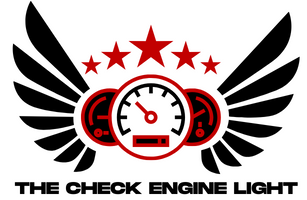

![featured for Blinking Check Engine Light: 12 Reasons + Fixes [2023]](https://thecheckenginelight.com/wp-content/uploads/2023/10/Blinking-Check-Engine-Light-12-Reasons-Fixes-2023-1400x500.png)
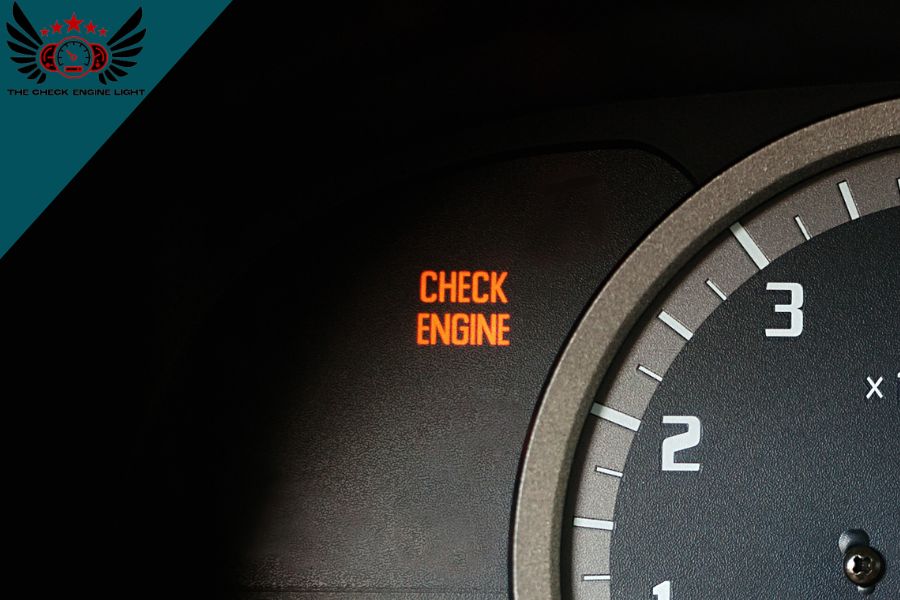
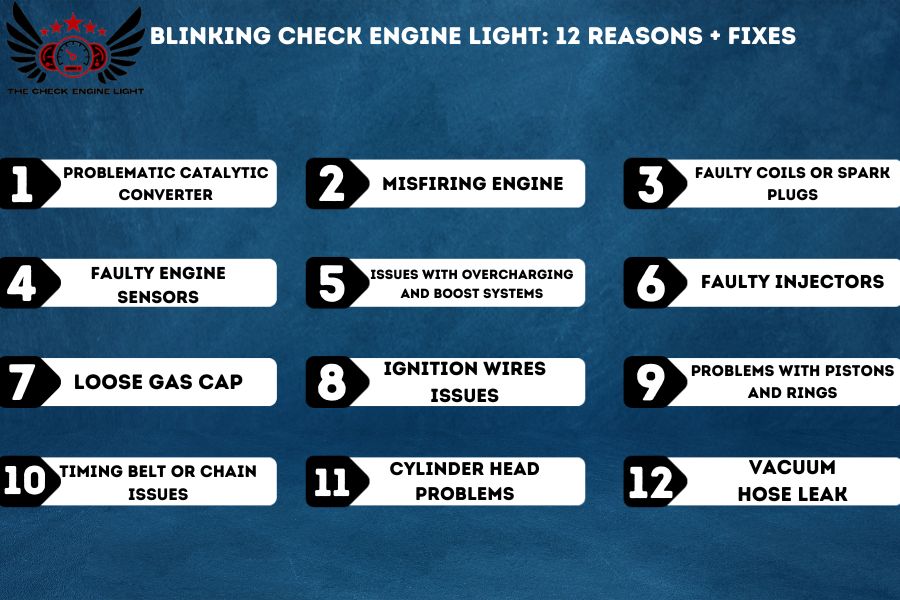
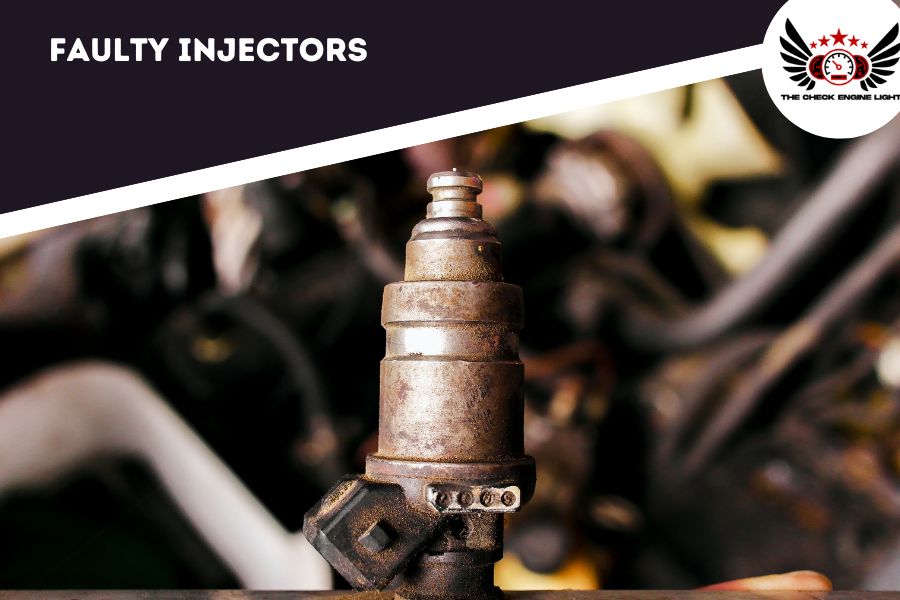
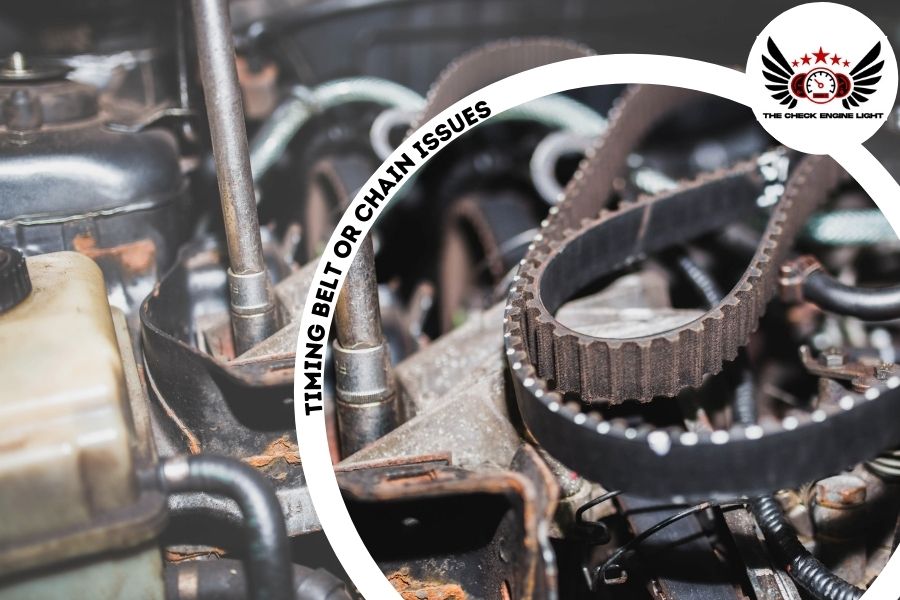
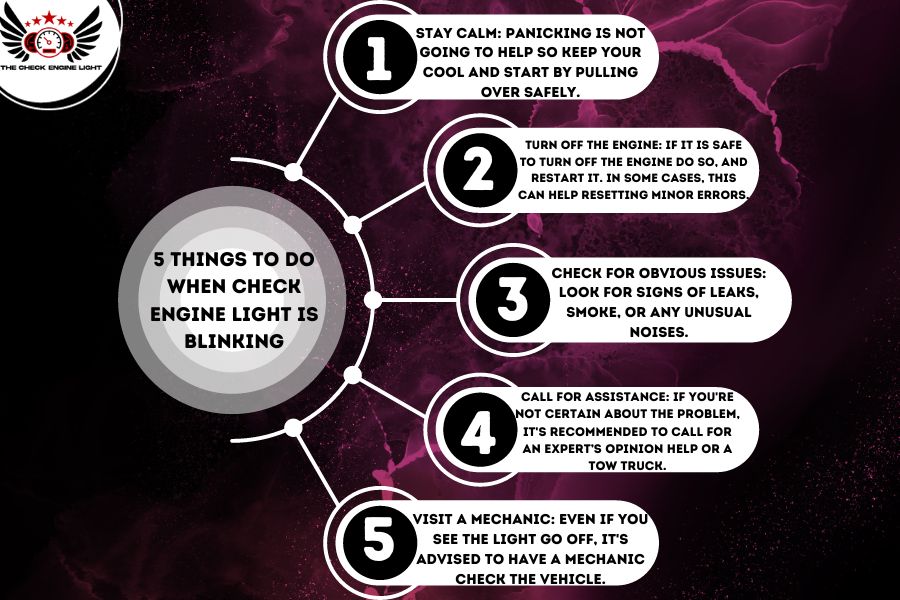
![an pic for Code p0420 Check Engine Light Fully Explained [2024]](https://thecheckenginelight.com/wp-content/uploads/2024/02/Code-p0420-Check-Engine-Light-Fully-Explained-2024-364x225.jpg)
